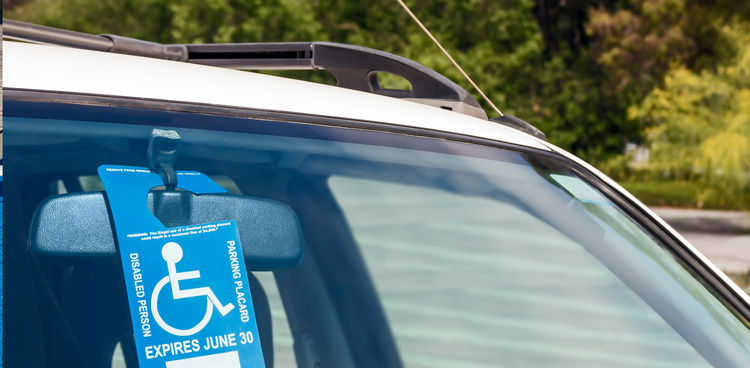
A Guide to Handicap Parking in New Jersey
Introduction
In this comprehensive guide, we will explore everything you need to know about handicap parking in New Jersey. Whether you are a resident, a visitor, or someone who requires accessible parking spaces, this article aims to provide you with the information you need to navigate the intricacies of handicap parking regulations in the state.
Understanding Handicap Parking
Handicap parking is a vital aspect of creating an inclusive society for individuals with disabilities. By designating specific parking spaces close to entrances, individuals with disabilities can access facilities and services conveniently. In New Jersey, the regulations governing disabled parking are outlined to ensure compliance and accessibility for those in need.
Who Qualifies for Handicap Parking?
To qualify for disabled parking privileges in New Jersey, individuals must meet specific criteria. The following conditions may make an individual eligible for a handicap parking permit or license plate:
- Mobility impairments that require the use of assistive devices like wheelchairs, crutches, or walkers.
- Severe visual impairments.
- Cardiovascular conditions that limit a person's ability to walk.
- Respiratory impairments that significantly impact mobility.
- Neurological disorders that affect motor skills.
- Any condition recognized as a disability by a licensed healthcare professional.
It is important to note that the eligibility criteria may vary, and it is best to consult with the Motor Vehicle Commission (MVC) in New Jersey for the most up-to-date information.
Applying for Handicap Parking Placard or License Plate
To apply for a handicap placard or license plate in New Jersey, follow these steps:
- Download the Application for Vehicle License Plates and/or Placard for Persons with a Disability from the MVC website.
- Complete the application form accurately, providing all necessary information.
- Have a licensed healthcare professional certify your disability by completing the appropriate section of the application.
- Submit the completed application to your local MVC agency or mail it to the address specified on the form.
- Include any required fees, as outlined on the application.
Once your application is processed and approved, you will receive your parking placard or license plate, which must be displayed properly in your vehicle.
Handicap Parking Rules and Regulations
To ensure the effectiveness and fairness of disabled parking, New Jersey has established specific rules and regulations. Familiarize yourself with the following guidelines:
Handicap Parking Spaces
Handicap parking spaces are designed to provide sufficient room for individuals with disabilities to enter and exit their vehicles comfortably. Here are some key features of these designated spaces:
- Accessibility: Handicap parking spaces are strategically located close to building entrances, ensuring easy access for individuals with disabilities.
- Dimensions: The size of a handicap parking space is typically larger than regular parking spaces to accommodate wheelchair ramps and other mobility aids.
- Accessibility Aisles: A striped access aisle next to a handicap parking space allows individuals to deploy ramps or transfer to and from their vehicles.
Handicap Parking Violations
It is crucial to respect disabled parking spaces and abide by the regulations. Violating these rules can result in fines and penalties. The following actions are considered violations:
- Unauthorized use of a parking space or parking in an access aisle.
- Falsely using a parking placard or license plate.
- Parking in a parking space without a valid placard or license plate.
Remember, these parking spaces are essential for individuals with disabilities to carry out their daily activities with ease and independence.
Frequently Asked Questions (FAQs)
Q: Can individuals from out-of-state use their disabled placard in New Jersey?
A: Yes, individuals from out-of-state can use their valid disabled placard in NJ. However, it is essential to adhere to the regulations and guidelines of the state you are visiting.
Q: How long is a disabled parking placard valid?
A: In NJ, a disabled parking placard is valid for up to three years. Before it expires, you must renew it by submitting a new application and obtaining recertification from a licensed healthcare professional.
Q: Can a family member or caregiver use a disabled parking placard?
A: No, a disabled parking placard is non-transferable and can only be used by the individual to whom it is issued. It is a violation to use a placard belonging to someone else, even if you are assisting them.
Q: Are disabled parking spaces always free?
A: While disabled parking spaces offer accessibility and convenience, parking fees may still apply. However, some establishments, such as hospitals and government buildings, may provide free parking for individuals with disabilities. It is recommended to check with the specific location for their parking policies.
Q: What should I do if I notice a vehicle parked illegally in a disabled parking space?
A: If you come across a vehicle parked illegally in a disabled parking space, you can report it to the local law enforcement agency or the MVC. Be prepared to provide details such as the license plate number, location, and time of the violation.
Q: Can I use a disabled parking placard if I am temporarily disabled?
A: Yes, if you have a temporary disability that meets the eligibility criteria, you can apply for a temporary disabled parking placard. It is crucial to return the placard once it is no longer required.
Conclusion
Navigating the regulations and guidelines for handicap parking in New Jersey is essential for creating an inclusive and accessible environment for individuals with disabilities. By understanding the qualifying criteria, the application process, and the rules and regulations, you can ensure the proper use of theseparking spaces and contribute to a more inclusive society.
Remember, respecting these parking spaces is not only a legal obligation but also a compassionate act that supports the rights and independence of individuals with disabilities.
.png)






